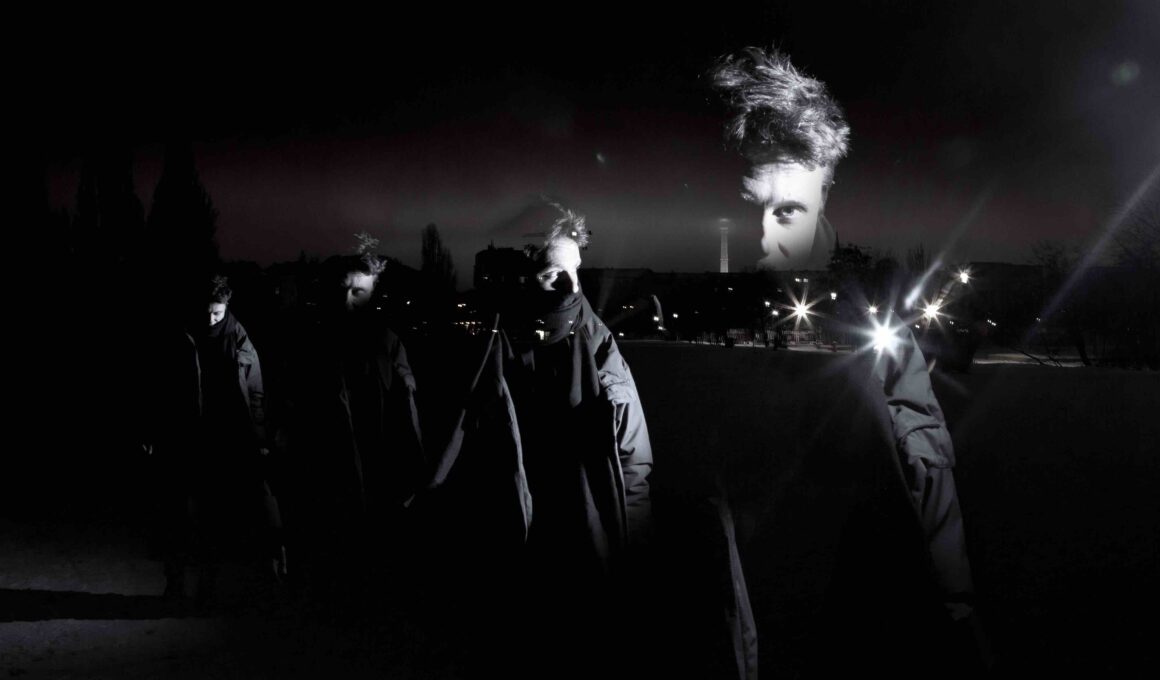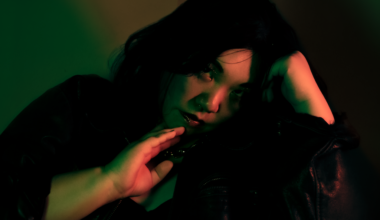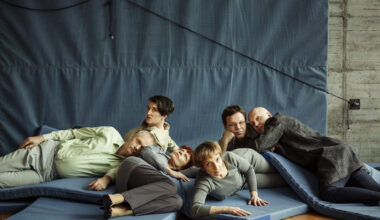AQAXA weaves audio messages and voice memos recorded over the years into an enveloping, warm, and pulsating kind of electronic music. The exploration of this personal archive is guided by machine learning algorithms, with which AQAXA performs, building new narratives from ephemeral digital remnants of its recent past.
Corporeal EP – AQAXA’s debut release on Punch Up Records – marshals deep beats, densely layered synthetic and acoustic sounds, and echoes of sonic memories fused into warm sheets of noise. The result is a space that is both introspective and euphoric. AQAXA’s debut release Corporeal EP was released by Punch Up Records and is available on Bandcamp as a digital download and as a limited edition SD card: https://aqaxa.bandcamp.com
FACTS
1. There is no way back.
2. Our lives are not a linear accumulation of events.
3. There are some ways back, but it’ll be different
QUESTIONS
1. What is the biggest inspiration for your music?
For Corporeal EP, the biggest inspiration was how moving your body to a rhythm can trigger memories and take you somewhere else. In the third track of the EP, Knee-jerk Drifter, I pushed this idea further by collecting lots of voice messages I had received in the previous two years and a bunch of videos I took while traveling. These audio memories formed a big pool of samples that I explored using an AI algorithm and motion sensors: here is an example of what it looks like.
Clubbing before COVID also had an important role in how the tracks took shape. In spring and summer 2019 I would go to club nights in Berlin or Hamburg several times a week, sometimes with friends, sometimes on my own. After a few hours dancing to electronic music, ideas would just appear, then I would find a corner in some chill-out area and try to type a few words in my notes, just some broken sentences to capture the core elements of the idea I had while on the dance floor. The hands appearing in the video (see below) of Xennial Sehnsucht, directed by Tim Grabham, are a reference to those moments in clubs when I would suddenly feel more conscious about the trajectories drawn by my hands moving in front of me, grabbing and drawing sounds, ideas, memories, images…
2. How and when did you get into making music?
I remember drumming with some chopsticks on a magazine as a child. Also hitting the lowest keys of an old piano at my grandparents’ place was an a-ha moment for 4-year-old me: the lowest ones sounded much cooler.
3. What are 5 of your favourite albums of all time?
I try to avoid having all-time favourites, they become some kind of dogma if you let them be a benchmark against which you measure everything else. I’ll limit this answer to music that came out after 2000.
Kid A (Radiohead). That album changed my way of listening to music. When it came out, I was a teenager that used to listen mostly to “guitar music.” I remember listening to it in my bedroom with a good friend of mine from school. We listened to the thing from start to finish, without uttering a word, each track was a rabbit hole. By the end of it I wasn’t even sure whether I liked it or not. The first five notes of that album are the beginning of everything (pun intended).
Predawn Qualia EP (Kangding Ray): perhaps not as sophisticated as his earlier full-lengths, but there is something beautifully compelling about the way he weaves his rhythms here. I had it on repeat before the plague, his set at Berghain that summer was ace.
Multila (Vladislav Delay): immense sound that defies categorisations. Another one that I had on repeat for a while. It gets better after every listen.
Ecstatic Computation (Caterina Barbieri): I love how she rips open the guts of her sounds towards the end of the opening track. It reminds me of that scene in Ghost in the Shell (the original 1995 anime) where Major puts herself under so much strain that her body is ripped apart.
LP1 (FKA twigs): likely one of the most talented artists of her generation, she is super human.
Open (The Necks): acoustic bliss, I once shed a little tear at one of their gigs.
That’s six, sorry, I broke another rule.
4. What do you associate with Berlin?
A certain sense of hedonistic freedom. Being who you want, with whomever you want, while at the same time being respectful of others around you. Love. Berlin is a city with a still visible scar, its love is not naïve, it’s the love of those who have lived through difficult relationships and came out of them wiser and even more hungry for life. There’s a certain poetry in this that is hard to find anywhere else in Europe.
5. What’s your favourite place in your town?
Mauerpark. This picture of me was taken there during the winter, where the so-called “death strip” used to be before the wall fell. There are still signs of that time there, which are now fenced and documented as archeological pieces, as well as various historical photographs displayed in a few corners. There are layers of collective memory in that place, as there are personal memories layered in my music. I live near there, and so did my friend Frieder Nagel – who remixed my track Xennial Sehnsucht – before he left Berlin. I am about to move to Friedrichshain and I will miss that place.
6. If there was no music in the world, what would you do instead?
I find pleasure in crafting things that people find meaningful or pleasurable. I think my work would consist in building things that could give people some kind of existential satisfaction, whether it’s software for making music, a piece of furniture, or food. I also enjoy talking to people about things they care about, so I would also like the idea of being a teacher, or a counsellor.
7. What was the last record/music you bought?
I don’t remember which one was the last one, but I recently bought Function by mHz on Bandcamp. Releasing Corporeal EP as a limited edition SD card was inspired by one of his earlier releases.
8. Who would you most like to collaborate with?
Probably Arca, I love what she does, the way she takes risks, how she can show exuberance as well as vulnerability in her work. Thinking of non-musicians, I like the idea of working with some kind of shamanic person that asks me some very good questions that make me think deeply about what I’m doing, get out of my comfort zone, and explore boundaries. They could also be a philosopher or a radical sociologist.
9. What was your best gig (as performer or spectator)?
AQAXA was born during COVID. Next question.
10. How important is technology to your creative process?
Can you even tell where technology ends these days? It’s just ubiquitous, we think through it and it affects our existence. Thus, it is not just “important”, it just “is”. What’s important in my opinion is to retain a certain awareness of what you are trying to say, who you’re trying to engage with.
Historically, music has often been a way of coming to terms with technology, see where you can break it or bend it in order to understand it better, whether you’re dealing with AI or pipe organs.
11. Do you have siblings and how do they feel about your career/art?
I have an imaginary sibling who works as an academic. We help each other making sense of our respective practices outside our respective bubbles.
Photo © AQAXA


